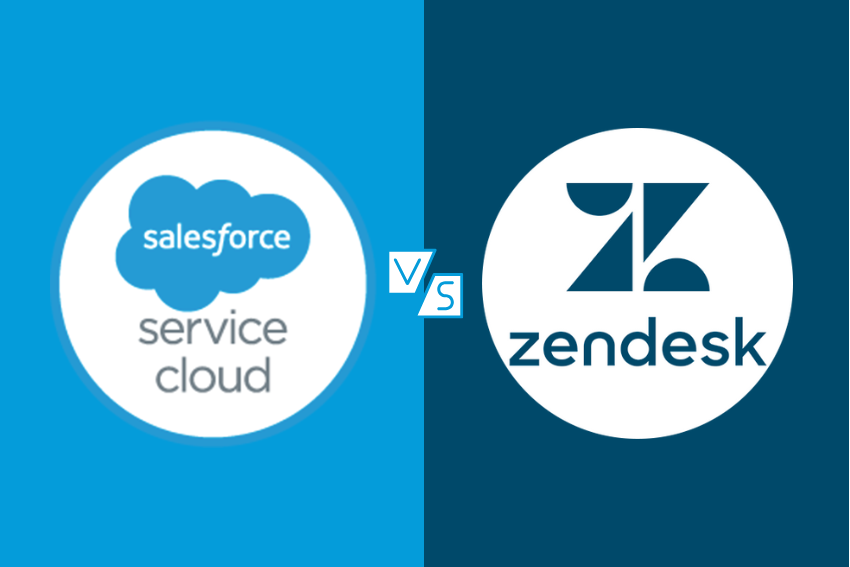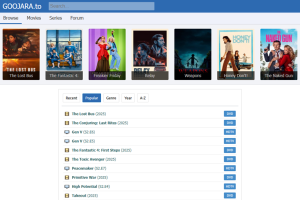Customer service is essential in the current world that bases business on customers. To meet this requirement, companies go to solutions like Salesforce Service Cloud and Zendesk that offer a single solution to the issue and assist the organizations to communicate more efficiently, simplify working processes, and save on services. Both solutions are alike in that they pursue the goal of customer satisfaction and efficiency in customer support, but they do it through different approaches and, moreover, they differ in their functionality, customization, and integration possibilities.

In this article, we are going to explain differences between Salesforce Service Cloud and Zendesk in terms of their main features, their unique advantages, and the way each of the two solutions would fit the business needs. This comparison will help you select the correct solution that meets your customer service needs, whether you are a small organization that requires a simple solution or an enterprise that has a highly customizable and integrated solution platform.
A Platform Overview: Salesforce Service Cloud
Salesforce Service Cloud is an extension of Salesforce CRM, can be used effectively by businesses that believe in scale and power. It provides extensive integrations with other Salesforce products, powerful AI services, omnichannel, and strong reporting, enabling companies to provide their customers with a highly personalized and data-driven service.
- Service Cloud is part of the Salesforce Customer 360 ecosystem that aims to deliver to enterprises a single, smart customer care platform. Known due to its richness and scalability, Service Cloud enables companies to offer personalized, active service with the help of a 360-degree customer view uniting sales, marketing as well and support data.
- Service Cloud provides an intelligent agent console that allows uniting cases, communications, and knowledge of resources in one interface. The platform promotes complex case management processes that automate case routing, case escalation, and resolution tracking.
- It is built on the cloud, and it is easily integrated with Salesforce Sales Cloud, its Marketing Cloud, and third-party applications through its AppExchange marketplace, with thousands of ready-built applications.
- Service Cloud will be especially effective when it comes to large organizations with an environment of complexity like regulated industries (finance, healthcare) that require high levels of data security and compliance (e.g., GDPR, HIPAA).
- Its architecture allows a large degree of customization using proprietary languages such as the Apex code, Salesforce Flow, no-code automation, Lightning components, and interface design.
A Platform Overview: Zendesk
Zendesk aims at simplicity as its core values, providing a more user-friendly way to handle tickets, automate, and provide self-service. Although it does not have such wide-ranging integrations as Salesforce, the simplified nature of Zendesk might suit small to medium-sized companies that want to have the capacity to manage their customer support without any problem.
- Simple cloud-based platform. This configuration would serve the needs of SMBs and rapidly expanding businesses that require decent onboarding and user-friendliness, not complicated functionalities.
- Zendesk Support Suite is the instrument that will enable the firm to integrate various customer requests that are submitted via various platforms, including email, chat, telephone, and social media into one ticketing platform.
- In the long run, Zendesk developed into Zendesk Sell- an automated sales system. It also launched Zendesk Guide that is a customer self-service knowledge base.
- Zendesk offers key support features, including AI-based automation and reporting. However, its customization capabilities are lower than Salesforce’s. The platform prioritizes simplicity and fast implementation with templates and easy automation. Minimal coding is required.
Key Features of Salesforce Service Cloud
Omnichannel Support
- Service cloud is unique in its ability to create an omnichannel. The platform allows the customer service teams to communicate with customers by using many different channels- emailing, chatting, social media, phone or even video.
- Its inbuilt quality enables the support agents to alternate the channels smoothly, giving customers the same and consistent experience.
- Unique Point: The native integrations of Salesforce with other Salesforce products allow a business to unify data on all channels to present an agent with a 360-degree view of customer journey.
AI and Automation
- Case assignment, routing, and escalation are examples of operations that are automated by Service Cloud with the aid of Einstein AI.
- The AI-powered insights assist businesses in forecasting trends and improving the workflow to work more efficiently.
- Unique Point: Einstein Analytics is also provided by the platform, which is not mere reporting but an AI-driven insight that can help businesses predict the level of service, identify trends, and make well-versed decisions.
Customization and Integrations
- Customization capabilities are one of the best aspects of Service Cloud. The site enables companies to create custom workflows, dashboards, and reports on the Lightning Experience of Salesforce.
- In addition, it has a smooth integration with various third-party applications, which can be extended through custom applications on Salesforce AppExchange.
- Unique Point: Service Cloud can be fully integrated with Salesforce CRM tools and is, therefore, a good choice when one wants to use Salesforce to manage their sales, marketing, and customer relationship activities.
Analytics and Reporting
- Service Cloud also has an opportunity to provide detailed analytics and reporting, which allows organizations to monitor customer satisfaction, case resolution time, and agent performance.
- Developed dashboards offer real-time access to important metrics that managers use to make sound decisions about service delivery.
- Unique Point: The Einstein Analytics service cloud at Service Cloud also enables enterprises to access the power of advanced predictive analytics and makes it possible to drive smarter decision-making by providing actionable insights.
User Experience and Setup
- Although Service Cloud has much better customization, it is associated with a higher learning curve.
- Onboarding and training can be very intensive to enable businesses that do not have previous experience in the Salesforce to realize the full capacity of the platform.
- Unique Point: On one hand, the platform can be easily customized, but on the other hand, it needs professional Salesforce consultants/admins to operate successfully and maintain the platform.
Key Features of Zendesk
Omnichannel Support
- Similar to Service Cloud, Zendesk has support through omnichannel, which allows a company to provide its customers with customer service through a broad variety of communication technologies, such as email, chat, phone, and social media.
- However, Zendesk is rather a solution that is oriented to make the ticket management procedure simpler than integrating all business activities.
- Unique point: Zendesk Messaging can also be used with WhatsApp, Facebook Messenger, and similar applications, which is why it fit on this list of companies with a wide reach to social media.
Self-Service Options
- Zendesk puts much emphasis on self-service facilities, including knowledge basis and FAQs where customers can solve their problems by themselves.
- This decreases the volume of incoming tickets, which can increase general efficiency and decrease operational costs.
- Unique Point: Zendesk Guide provides businesses with an intuitive and easy to manage self-service knowledge base that enables customers to get articles, troubleshooting, and product information whenever they need them.
AI and Automation
- One of the AI-based tools employed at Zendesk is Answer Bot, which is able to help customers through automated answers to commonly posed questions.
- Besides, Zendesk can be automated to enable companies to automate the routing of tickets, priority, and other operations with predefined rules.
- Unique Point: The AI used by Zendesk is built into the ticketing system in such a way that automated support is efficient and smart, and allows faster solutions, without the need to connect with the agent.
Analytics and Reporting
- Zendesk provides detailed customer satisfaction monitoring, agent performance monitoring, and ticket trend monitoring.
- The platform also has simple dashboards and reports, which may also be tailored to suit business requirements.
- Unique Point: Zendesk Explore is the reporting tool of the platform that offers businesses real-time support statistics to improve their operational processes and customer relations approaches.
Ticket Management
- The best way to use tickets is Zendesk; it helps support agents to manage, rank, and solve tickets successfully.
- Through the system, agents can collaborate with each other and escalate where required and provide detailed reports relating to each case.
- Unique Point: The ticketing process is exceedingly pliable, which allows companies the chance to tailor the way tickets are directed, prioritized, and settled, which suits teams that require a basic, no-frill one.
Comparison of Salesforce Service Cloud vs Zendesk
| Feature | Salesforce Service Cloud | Zendesk |
|---|---|---|
| Target Audience |
|
|
| Customization |
|
|
| AI Capabilities |
|
|
| Analytics & Reporting |
|
|
| Integration Ecosystem |
|
|
| Ease of Use |
|
|
| Pricing |
|
|
Salesforce Service Cloud vs Zendesk: Making the Right Choice
- In making a decision between Service Cloud and Zendesk, one must keep in mind the size of your business, its industry, and the tools that you already have at your disposal.
- Service Cloud can be characterized as the most appropriate solution to be used by organizations that require a highly integrated solution that has the potential for scaling and being used in customer service, sales, and marketing, among other business processes.
- The fact that it has highly developed AI features and customization possibilities makes it suitable for companies whose customer care processes are complicated or already utilize Salesforce elsewhere.
- Conversely, Zendesk would suit smaller medium-sized companies that are in need of a simpler and more affordable service. It has a friendly interface, a powerful ticketing control system, and self-service orientation, which makes it a good option for business organizations that want to offer high-quality customer service without the involvement of intricate integrations.
- Real-World Case: A large organization with a customer base of a global scale may choose Service Cloud because it is highly integrated with other Salesforce solutions, is powered by AI, and can be customized to workflow. In the meantime, Zendesk can be more affordable to a developing e-commerce brand, and the convenient interface and attention to effective ticket management can help this company.
Conclusion
Both Service Cloud and Zendesk are customer service platforms in the world, yet they target completely different segments and business priorities. Salesforce is the best in its full-fledged CRM integration, unmatched customization, and AI-based intelligence, and is best suited for large organizations with complicated and multi-departmental workflows and strong security requirements. Zendesk is a lean, easy to use, and affordable support experience that is aimed at small to mid-sized teams that need a fast rollout and simple management of tickets.
Companies should also take the existing needs and weigh them against future expansion needs to choose the platform that is most compatible with the vision. Service Cloud is intended to be considered by those who want heavy configurability, scalability, and strong analytics. Zendesk can be a better option in companies that focus on convenience, cost efficiency, and the speed of time-to-value.
Finally, the best decision regarding the CRM platform will be informed with insightful analysis, which will be industry, team size, and customer service strategy specifically, and the organization will be prepared to reach unprecedented customer engagement.
FAQs
Difference Between Salesforce Service Cloud vs Zendesk?
- Service Cloud is a highly scalable, enterprise-level service platform with high levels of integration with the many platforms that make up Salesforce, thus suited to large organizations with complex customer service requirements.
- Zendesk is, however, more direct and easier to use, and it presents a great solution to companies needing to achieve efficient ticket management with the use of self-service alternatives.
Which platform is better in terms of AI capabilities?
- Service Cloud is ahead with AI, using Einstein AI to predict analytics, route cases, and chatbots with AI (Einstein Bots).
- Zendesk has Answer Bot, which might answer frequent questions, though its AI features are not as extended as Salesforce has wide AI-based automation and insights.
Is Salesforce Service Cloud more expensive than Zendesk?
- In most cases, Service Cloud is viewed as a more costly alternative because of its high customization and features, and integrations.
- Zendesk is cheaper and may serve as a cost-efficient option for less developed companies or those that do not have such complicated customer service needs.
Can Zendesk be integrated with Salesforce?
Yes, Zendesk has Salesforce integrations. This allows Salesforce CRM to easily integrate its customer service information with its Salesforce records to give a single perspective of how they interact with their customers on both platforms.
Which is the most appropriate platform for small businesses?
- With the small businesses, the best choice is Zendesk since it is user-friendly, can be installed with ease, and is inexpensive.
- It offers a good range of ticket management, self-service, and automation, which is why it is a perfect fit in businesses that do not need the wide scope of customization Salesforce Service Cloud gives.


